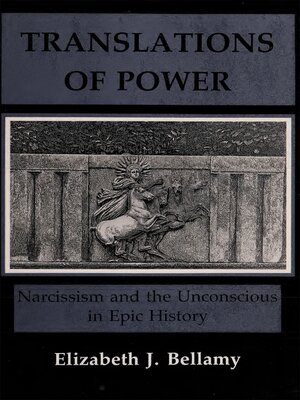
Sign up to save your library
With an OverDrive account, you can save your favorite libraries for at-a-glance information about availability. Find out more about OverDrive accounts.
Find this title in Libby, the library reading app by OverDrive.



Search for a digital library with this title
Title found at these libraries:
| Library Name | Distance |
|---|---|
| Loading... |
Elizabeth J. Bellamy here casts new theoretical light on the Renaissance genre of the dynastic epic. Drawing upon Freudian and Lacanian psychoanalysis to illuminate the emergence of an epic "subjecthood," she focuses on Virgil's Aeneid, Ariosto's Orlando furioso, Tasso's Gerusalemme liberata, and Spenser's Faerie Queene in an attempt to demonstrate how the operations of the unconscious may be interpreted within narrative history.
Bellamy first evaluates the psychoanalytic approach to epic as a possible alternative to the new historicism. Turning to the Aeneid, she discusses Freud's'neurotic'relation to Rome as a founding image for a historical unconscious. She then interweaves a genealogy of epic subjecthood with the motif of the translatio imperii, likening the'translations of power'that constitute the translatio imperii to extended meditations on the fate of Troy throughout literary history. According to Bellamy, the epic genre manifests a repeated displacement and repression of its Trojan origins, and the doomed city of Troy represents the locus of epic's own narrative narcissism. Offering provocative analyses of epic temporality and of the function of the death drive in epic narrative, she concludes that dynastic epic may be seen as a structure of narcissistic desire which undermines the capacity of the epic to embody a fully articulated historical subject.
Translations of Power will enliven current debates among scholars and students of Renaissance culture, literary theory, gender studies, and psychoanalytic criticism.







